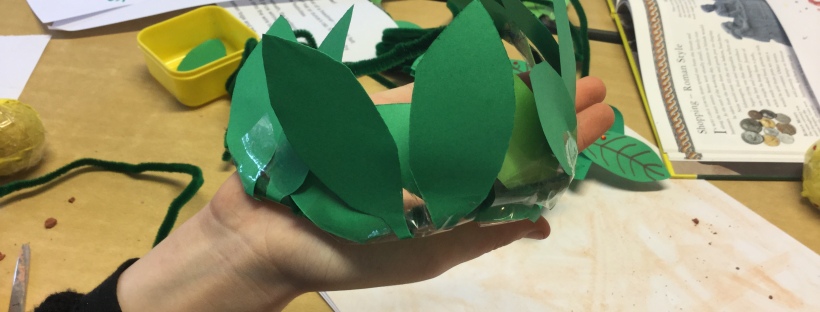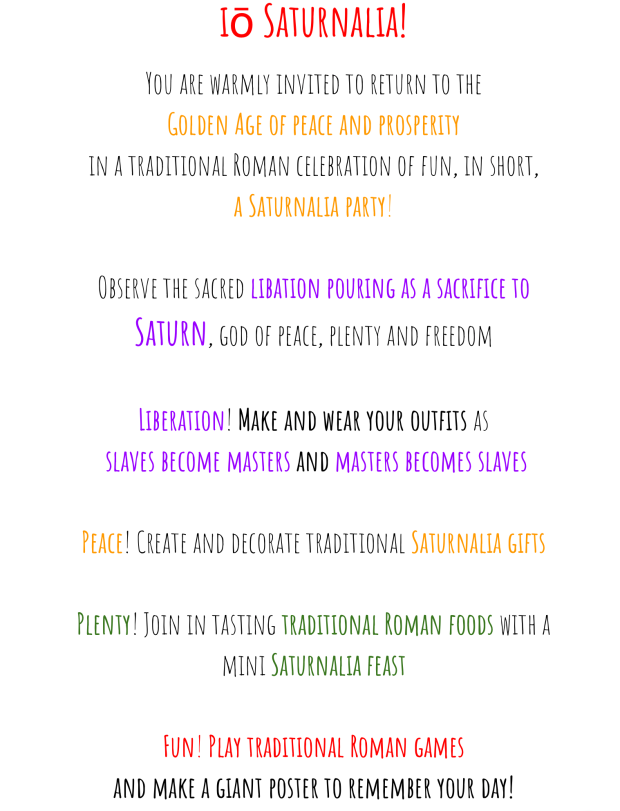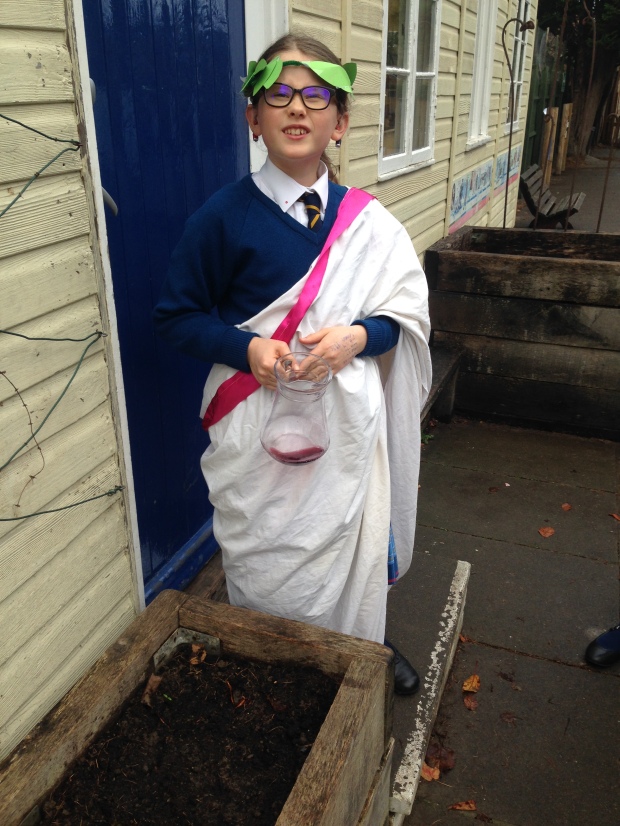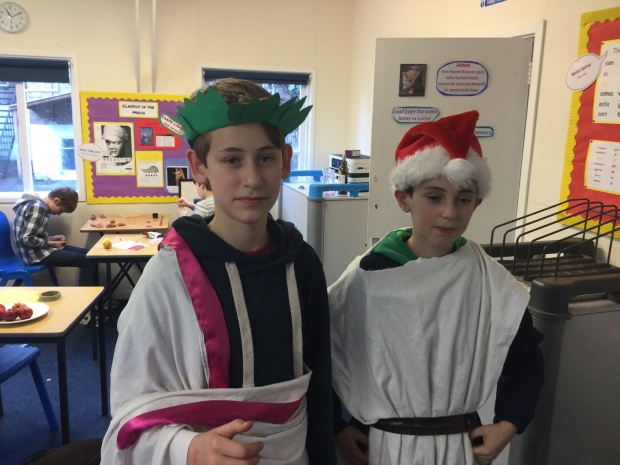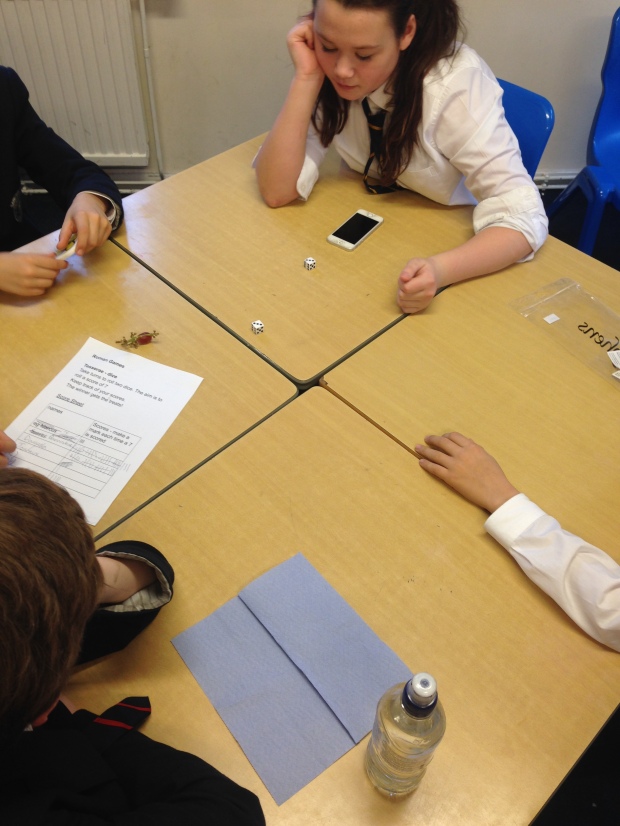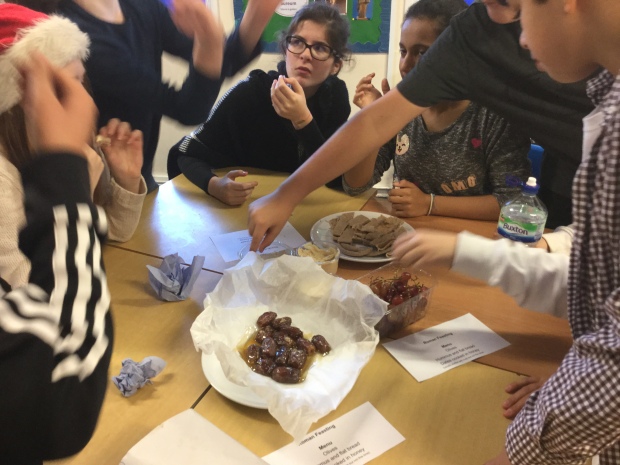This afternoon, my intrepid Year 8 Latin class performed admirably in the 40th annual Ludi Scaenici, held at The Perse School in Cambridge. Ludi Scaenici is Latin for Theatrical Games – like Olympic Games, but theatrical – you get the picture.
The competition was, I believe, initially devised by the Cambridge Latin Course people, and as you can see from the rules below retains strong links to Book 1 of that course. 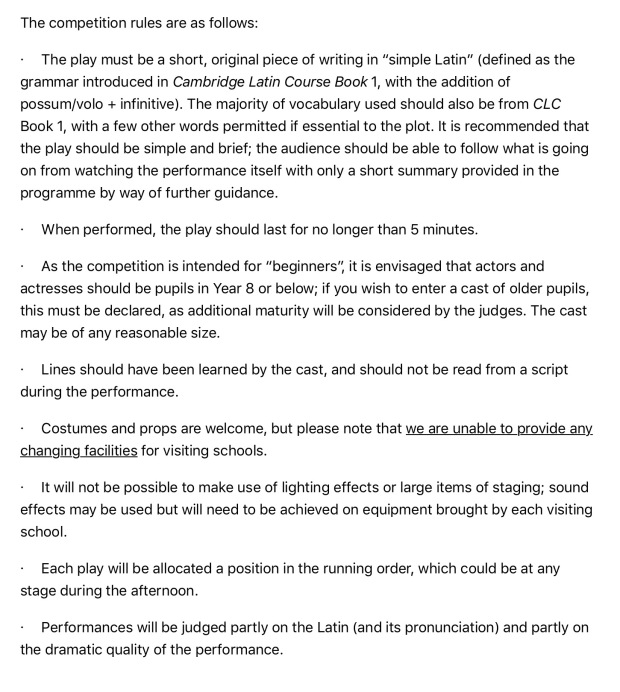
We found out about entering the competition shortly before the Easter holidays and I had to make decisions about which group or groups to enter with. I am only in school for limited hours each week so rehearsing in class time seemed best, and also would put less pressure on the pupils’ already busy school days. My colleagues were unanimous in advocating Year 8 as a wonderfully creative group, so that was that decision made. This was easier too as there is currently only one Year 8 Latin class but two Year 7 classes. (Not sure how this will work next year, but somehow it will!) This is all a longhand way of saying that we didn’t have much rehearsal time.
Once we got the idea for the plot, putting it into Latin was pretty straightforward. It was also a fun challenge since complex subjunctive clauses expressing conditional actions are technically not allowed under the rules. For example, a sentence such as ‘I would have gotten away with it if it hadn’t been for you meddling kids’ would need substantial simplifying to something more like ‘Yes, and you meddling kids prevented me!’ Then there’s the vocabulary issue – ‘meddling’ in Latin? ‘Kids’? (Have you worked out yet that we performed a take on Scooby Doo?)
The outstanding play of the day and very worthy winner, ‘Ultio Deorum’, was performed by St John’s College School and featured virtuoso violin playing, ingenious use of a packing case and stage space, an engaging story and quality performances from all. The other stand-out play for me was St Mary’s School’s ‘Zompeii’, in which a zombie attack was artfully entwined with the fateful eruption of Mount Vesuvius.
As you can tell, there was wonderful diversity in the plays performed this year – as well as the gods and zombies, there were several different mammalian life forms (including a werewolf) and even some humans.
Clearly it is an invaluable experience for pupils in Years 7 and 8 to be able to watch (and perform in!) plays that are actually in Latin and to be exposed to and actively engaging with all the creativity that goes along with writing, directing, producing, rehearsing, performing, and so on. There is so much in this exercise that is interdisciplinary and also which requires deep focus. Surely this is what education should be all about.
I have been, as my colleagues assured me I would be, deeply impressed with the levels of commitment of my pupils, their independence of thought and action, their creativity, their enthusiasm to put their views across constructively, willingness to put themselves on the line for the sake of the play. Well done, Year 8, vobis gratias ago!
Thanks also to all the other schools who performed and made it an excellent afternoon’s entertainment – details in the picture below; to The Perse and Dr James Watson for hosting and organising; to Caroline Bristow and Dr Toner for adjudicating; to my colleagues for encouraging me, proof reading, risk assessment assistance and logistics, directorial magic, accompanying us and the rest – Laura Pooley, Louise Nicklin, Sarah Cowan, Neil Carrington, Richard Settle, Julia Cottam. I feel like a proper luvvy now. Thank you all!
Final thought: if you teach Year 7 or 8 Latin, seriously consider entering this competition next year, then do it anyway!


